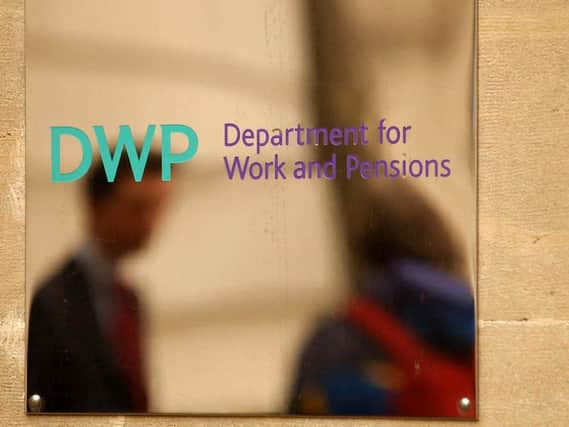Boost Universal Credit to stop families being 'plunged into poverty'


The TUC said levels of support for the unemployed are now lower in real terms than during the mass unemployment peaks of the 1980s and 1990s.
It said that even after the recent increase of £20 per week, the basic rate of Universal Credit is worth just a sixth of average weekly pay at £94 a week.
Advertisement
Hide AdAdvertisement
Hide AdA new report published by the TUC said that in 1984 when jobless levels were at 11 per cent, unemployment benefit was worth a quarter of average earnings; and in 1993 when joblessness rose to over 10 per cent the benefit was worth a fifth of average pay.
With unemployment set to “rise sharply as a result of coronavirus hitting businesses and the economy”, more support is needed to help those who lose their jobs, argued the TUC.
General Secretary Frances O’Grady said: “Unions have worked closely with Government during this crisis to protect livelihoods, but there is still more to do. People who lose their jobs must get the support they need to make ends meet and to get back on their feet.
“If we don’t urgently boost Universal Credit many risk being plunged into poverty.
Advertisement
Hide AdAdvertisement
Hide Ad“We need a social security system that can deal with the current pandemic and beyond. It’s time to start a national conversation about how we repair Britain’s safety net and help those who fall on hard times to bounce back.”
The TUC also argued that unemployment support in the UK “compares poorly” with other European countries, where benefits are paid as a proportion of previous earnings, ranging from 60 per cent in Germany to 90 per cent in Denmark.
It wants a move towards a earnings-related system in the long-term, but calls for ministers to urgently raise the basic level of Universal Credit for the duration of the outbreak to 80 per cent of the real living wage – or £260 a week.
The number of people applying for Universal Credit in the first two weeks since Boris Johnson announced lockdown measures on March 16 increased almost 10-fold, from around 100,000 on a normal two-week period to 950,000. More than 70,000 new Universal Credit claimants have already received an urgent advance payment.
Advertisement
Hide AdAdvertisement
Hide AdThe increase to the benefit was part of a combination of measures including a relaxation on the rules for self-employed people claiming Universal Credit.
A Department for Work and Pensions spokesman said: “Universal Credit is delivering vital support to millions of people in these unprecedented times, and from today payments will rise by up to £1,040 a year. This Government is committed to doing whatever it takes to help those affected by Covid-19 and has announced over £6.5 billion of additional measures through the welfare system.”
Young and low-earners hit most hard
Young employees and low earners are the most likely to be affected by business closures due to the lockdown, researchers have found.
A study by the Institute for Fiscal Studies discovered that a “remarkable concentration” of workers under 25, those earning the lowest wages and women are employed in sectors that have shut down in response to the Covid-19 pandemic. The results give rise to “serious worries” about the longer-term effect of the crisis on young people and inequality, they said.
Advertisement
Hide AdAdvertisement
Hide AdThe study revealed that the largest disparity in affected workers was by earnings, with those with the lowest earnings nearly seven times more likely to work in shutdown sectors than those with the highest earnings.